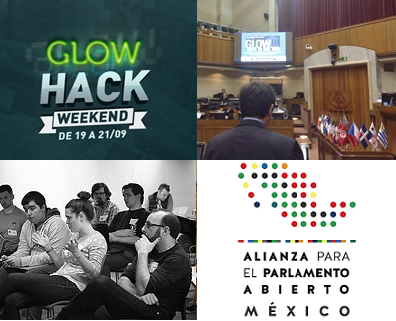Last month, the Open Government Partnership (OGP)’s Legislative Openness Working Group issued an open call to parliaments and civil society organizations around the world: show support for open lawmaking, and help advance the cause. Thanks to “an incredibly strong network of national advocates,” the response to the first-ever Global Legislative Openness Week (GLOW) was tremendous, with 45 activities organized in 33 countries. See images, videos and stories from the week at openparl2014.org.

Clockwise from top: Brazil’s GLOW Hack Weekend; the OGP Legislative Openness Working Group’s global meeting in Chile; Mexico’s Open Parliament Alliance logo; and Open Australia’s Hackfest: GLOW Edition (photo by Lisa Cross Photography)
The GLOW campaign was anchored by two international OGP Working Group meetings aimed at expanding civic engagement and institutionalizing the open parliament agenda — in other words, making sure that citizens can actively participate in decisions that affect them, and making sure that the Open Government Partnership has reform mechanisms and resources that are for and by legislatures. In between these two meetings (a regional meeting hosted by the Parliament of Montenegro and a global meeting held by the Congress of Chile, a co-anchor of the OGP Working Group) a number of independent GLOW events brought legislators and civil society organizations together to discuss opening parliamentary processes and information — particularly open data.
Here are just some of the GLOW activities held between Sept. 15 and 25: